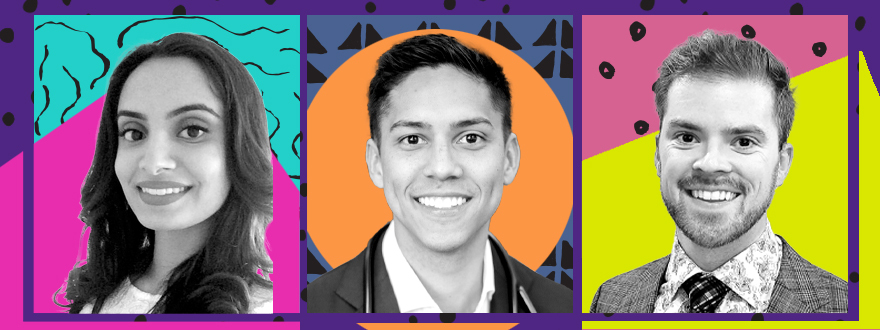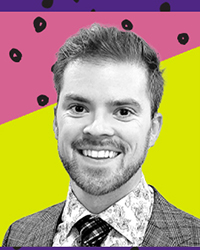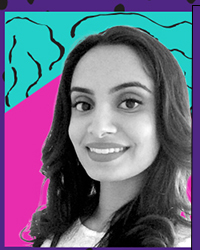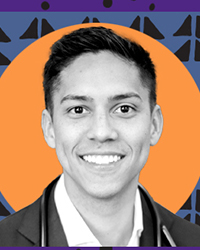Medical students learn valuable skills during summer research program

By Cam Buchan
A summer or two spent immersed in a research program can make a lifetime of difference in the careers of Schulich School of Medicine & Dentistry medical students.
Through the Summer Research Training Program (SRTP), first-year students gain access to a full range of supervised research options, including clinical and laboratory research in any of the basic science departments, dentistry, population health research, and research on medical and dental education.
As a clinician scientist himself, Dr. Jim Lewis, director, clinical research training programs at Schulich Medicine & Dentistry, knows the value of research in a career.
“The SRTP gives students an intense exposure to research that will help them decide whether they want to pursue research as a career,” said Lewis, who oversees SRTP. “In my opinion, it’s important for all medical students to have exposure to some research during their training so that they’ll be better doctors.”
Lewis added that, with information so readily available to patients online, it’s important for all doctors, including family doctors, to have some experience with evidence-based medicine to ensure they are providing sound advice.
To learn more about the SRTP research projects available for 2023, or to apply, please visit the Schulich Medicine & Dentistry Research Office's page.
Below are this summer’s award winners, based on participation in seminars, and a final report and presentation by second-year SRTP students.
Khadija Ahmed, Medicine, Class of 2024 – Dr. L. DeWitt Wilcox Award
“Enhancing Equity Through Implicit Bias Recognition and Management in Medical School Admissions”
Area of research
Addressing issues relating to equity, diversity, and inclusion (EDI) is essential for medical school admissions processes. Admissions members have an important role and influence in admissions decisions, yet may be prone to biases that can impact EDI efforts. Despite some success, the effects of bias training are mixed and lack research in an admissions-specific context.
Therefore, to inform admissions training guidelines, our study examined how key players involved in medical admissions integrate and reconcile feedback about their biases.
Lessons learned
The program taught me the importance of collaboration to propel new ideas forward and initiate change. The response from admissions stakeholders to participate in our research study was overwhelmingly high and really highlighted the interest and drive for positive and sustainable change in this area of medical education. This experience has made me more cognizant of the power of implicit biases and how my own life experiences influence how I interpret or assess others.
Career goals
My ultimate career goal is to be a physician who is constantly reflective of my privilege in sharing with the patient experience and being integrated into the narrative of their lives. I’m passionate about equitable and inclusive health care and have a special interest in pursuing a future practice that includes compassionate and empathetic care for minority, refugee, and newcomer populations.
Cameron Patterson, Medicine, Class of 2024 – Horace and Clarice Wankel Memorial Award
“Cardiac Rehabilitation Sustainability”

Area of research
We set out to identify the gaps in the literature that underpin the guidelines supporting cardiovascular rehabilitation (CR) and to understand their implications for patients. The gaps result from study populations that are primarily young men without other co-morbidities and short follow-up timelines that do not assess the long-term impacts or sustainability of the benefits of CR. Furthermore, the literature does not investigate what cardiac risk factors are most likely to be improved with CR and which are inadequately modified. We are now concluding what we believe to be the first meta-analysis evaluating outcomes beyond one year of follow-up with more representative groups of patients.
Lessons learned
In every research endeavour, you must understand why your question is important to the patient. When you can articulate the significance of the question you are asking, you are better able to direct your inquiry and investigations. Moreover, you can better advocate for the research and by extension, the patient. Through understanding how the gaps in CR literature can impact patients, our research problem is now more comprehensive and multifaceted.
Career goals
I look forward to determining what area of medicine and/or surgery I am most interested in. Long term, I would like to leverage my dual background in business and medicine to advocate for patients at the World Health Organization.
Brandon Loshusan, Medicine, Class of 2024 – Dr. Glen S. Wither Award for Research
“Evaluation of the Young’s Modulus of Human Lung Cancers”
Area of research
Our research entailed measuring the stiffness of lung tumours. We measured this using the Young’s Modulus (YM) by indenting the tissue using a custom device created at the Canadian Surgical Technologies & Advanced Robotics laboratory. Our team compared the stiffness of lung tumours to normal lung tissue and characterized the differences in stiffness between various histologies of lung tumours. This research is important because the preferred method of lung tumour removal is Video Assisted Thoracic Surgery (VATS), which depends on the differential stiffness between the tumour and its adjacent tissue. Our results showed that various types of tumours had YM values greater than adjacent lung histologies. Our team has developed a tactile-sensing system to identify deep, solid tumours. Using the catalogue of the YM properties of lung tissue and cancers could be useful in developing technologies to facilitate minimally invasive surgeries.
Lessons learned
The program has been invaluable for my personal and professional growth. Witnessing the continuity of care for each patient and the profound impact that surgery has on their lives has further cemented the importance of bringing meaningful research from bench to bed-side.
Career goals
Currently my goal is to learn as much as possible in each of my clinical rotations to bring a holistic approach to each of my future patients. My ultimate goal is to pursue a career in surgery, while contributing to research that improves patient care.











